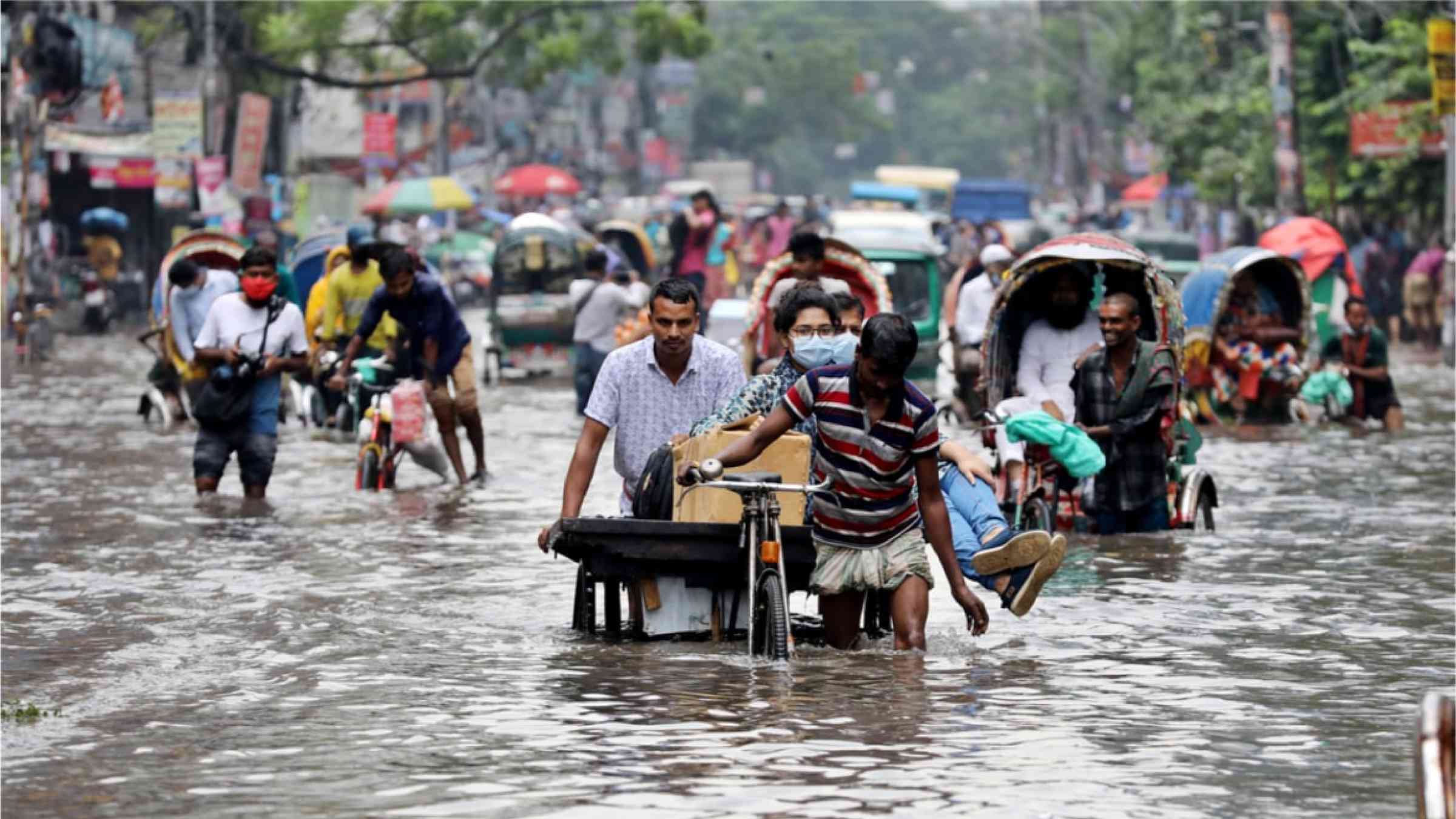Floods
Floods are natural disasters characterized by an overflow
of water that submerges land that is usually dry. They can occur due to a variety of
reasons, including heavy rainfall, river overflow, coastal storm surges, and dam failures.
Floods can cause significant damage to infrastructure, homes, and agriculture, and pose serious
risks to human life. They can disrupt transportation, contaminate drinking water, and lead to long-term
economic and environmental impacts. Flash floods, a type of flood that develops
rapidly with little warning, are particularly
dangerous due to their sudden onset and powerful water flows.
To escape a flood, it's crucial to have a plan in place. Stay informed by monitoring
weather reports and heed any evacuation orders from authorities. If flooding occurs, move
to higher ground immediately, avoiding low-lying areas and riverbanks. Do not attempt to walk
or drive through floodwaters, as they can be deeper and more forceful than they appear, posing a
risk of drowning or being swept away. If trapped in a building, go to the highest floor and signal
for help. Keep an emergency kit with essentials such as water, food, medications, and important documents.
By staying prepared and acting quickly, you can increase your chances of safely escaping a flood.
